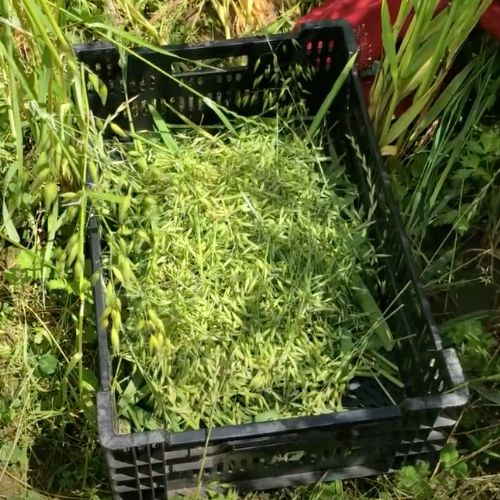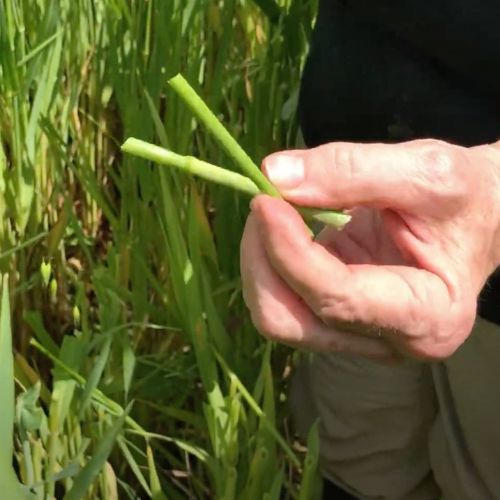Many readers of the Great Green Wall come here for the straight answers, backed by actual research. Our team doesn’t listen to the echo chamber of online bloggers, unless they can cite their sources.
Sometimes this means there’s good news behind the hype of a product. Like when we found the research supporting Fenugreek as a powerful T-Booster. Armed with that information, you and I can feel more confident in products that include it in their formula. But sometimes we have to dispel a narrative; sometimes, the hype is hot air..
What You Need to Know
What the Researchers Say
We’ve all been there: we enter something into a search bar and all the results are blogs. In fact, that’s one of our motivations in doing our rigorous work: we want to put some truth and actual scientific knowledge into the mix. When I started researching health and fitness a decade ago, I came across Oat Straw, oats, and their derivative compound, Avenacosides, as they pertain to cholesterol.
When I started seeing these ingredients on T-Boosters, I became suspicious. For good reason.
The Only Positive Study
Every few months I check the scientific journals, from around the world, for any new updates. In all these years, I’ve still only been able to find one article linking Oat Straw with sexual health. Published back in ‘18, it’s a study analyzing the effects of fluorine on sperm count and testicular health. They did find that giving male rats Avena Sativa helped reduce damage to reproductive organs.

Importantly, though, their public data doesn’t use the word “significantly,” and doesn’t include actual measures of testosterone. So unless you’re a lab rat suffering from fluorine poisoning, these data may not be of much use for you.
Remaining Literature
Against that one study, let’s look at a few with no results. A few people and product descriptions I’ve encountered have listed as “evidence” a study from way back in 2011 citing Oat Straw as “being studied” for “reproductive health.” Here’s the abstract of that study, or the intro paragraph. Looks promising? Not really.
Here’s the full-text of the study, wherein they are clear that Oat Straw is only listed as an example of aphrodisiac plants. Their study didn’t actually research oatstraw. No data. Given the extent of the plants they did study, it’s telling that they never tried using Oat Straw.
Next we have data from scientists that performed real experiments with Oat Straw, comparing it to various other herbs, and against placebo (no supplement). In this study, the group who took Oat Straw as Avena Sativa had no significant difference in testosterone versus any other group–or even against the group that got no supplement.
How Oats May Lower Testosterone
You read that correctly. Not only is there no evidence that Oat Straw can increase Testosterone, there’s some evidence it can even damage your T-levels. Here’s how it works.
All hormones are chemically identified as cholesterols. That means that anything that actively reduces cholesterol can disrupt hormone health. And like I mentioned earlier, reducing cholesterol is a primary action of ingesting Oats..

One study of a generic cholesterol medicine showed this link without doubt: lowering cholesterol lowers all hormone levels, in men and women. To Oat Straw specifically, even short-term, high-dose intake of Oats has been demonstrated to lower Cholesterol in at 19% of test participants.
Next we have a study of Oat Extracts where participants had a 17.9% reduction in Glutathione Hormone (GSH). If you’ve never heard of GSH, it’s an important indicator of Free Testosterone–one study showed that lowering GSH damaged the cells in the testes that produce Testosterone, and another study showed that plant that produced more GSH led to more Testosterone.
But wait! Oat Straw truthers may defend their particular brand of extract for its purity or isolation of compounds. The fact is, though, that the more pure the extract, the more concentrated the compound that kills cholesterol, β-glucan.
Final Word
If your primary health concern is Testosterone health, limit your oat intake. I personally recommend high-fiber for weight loss, and our best-rated fat-burners make scientifically sound use of novel fibers like glucomannan.
What I can definitely say is that Oat Straw is not a scientifically sound ingredient for T-Boosting. And in high-doses, it may even actively attack your T-Levels.

